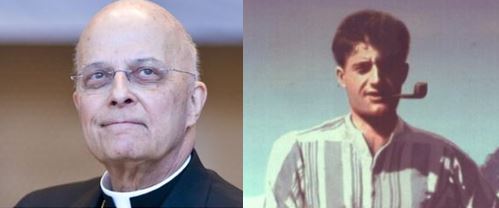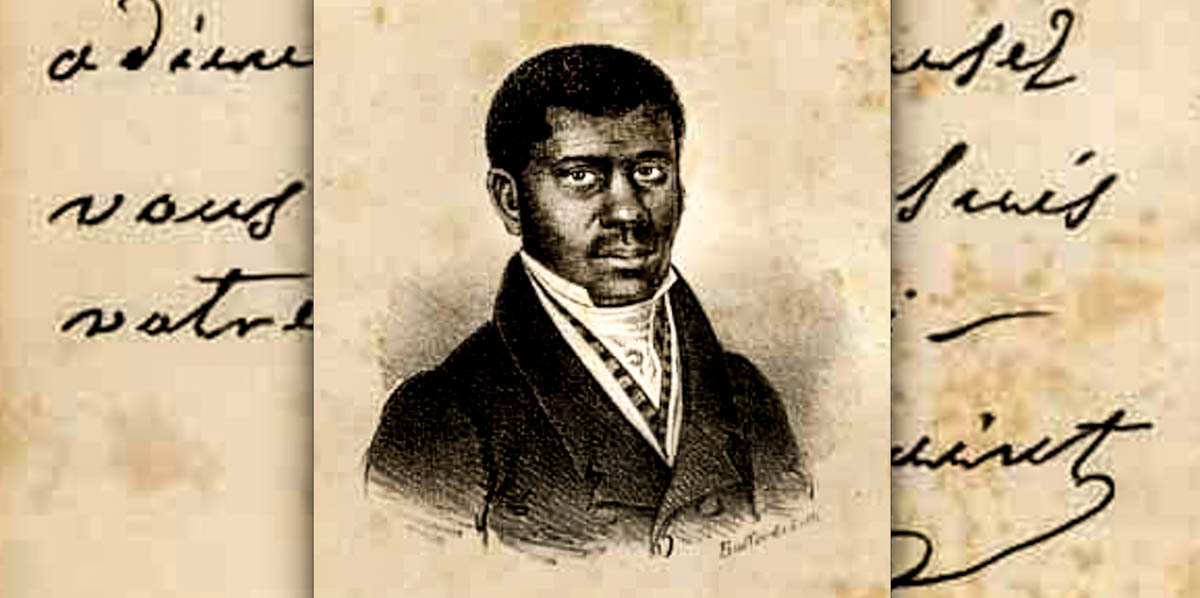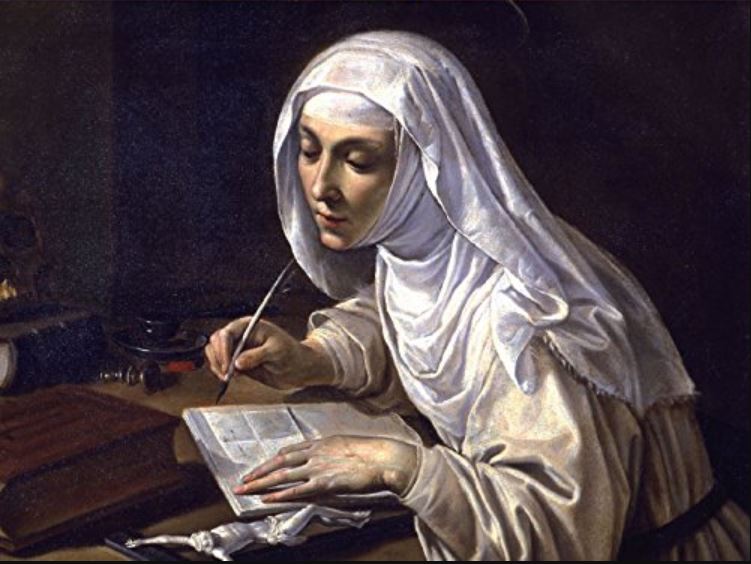Lots of people don’t realize that though she was beloved since her own time and popularly declared a saint, it wasn’t until 2012, when Pope Benedict XVI prepared to name her a Doctor of the Church (only the fourth female so recognized) that Hildegard was formally proclaimed a saint. Announcing his intention to raise Hildegard to the Doctorate in October of that year, Benedict noted in May, “Hildegard was a Benedictine nun during the height of the German Middle Ages, a true master of theology and a great scholar of the natural sciences and of music.”
Later, in his Apostolic Letter, Benedict declared,
“In her many writings Hildegard dedicated herself exclusively to explaining divine revelation and making God known in the clarity of his love. Hildegard’s teaching is considered eminent both for its depth, the correctness of its interpretation, and the originality of its views. The texts she produced are refreshing in their authentic “intellectual charity” and emphasize the power of penetration and comprehensiveness of her contemplation of the mystery of the Blessed Trinity, the Incarnation, the Church, humanity and nature as God’s creation, to be appreciated and respected.
These works were born from a deep mystical experience and propose a perceptive reflection on the mystery of God. …But particularly illuminating are the judgments expressed by Saint Bernard of Clairvaux, who encouraged her, and especially by Pope Eugene III, who in 1147 authorized her to write and to speak in public. Theological reflection enabled Hildegard to organize and understand, at least in part, the content of her visions. In addition to books on theology and mysticism, she also authored works on medicine and natural sciences. Her letters are also numerous — about four hundred are extant; these were addressed to simple people, to religious communities, popes, bishops and the civil authorities of her time. She was also a composer of sacred music. The corpus of her writings, for their quantity, quality and variety of interests, is unmatched by any other female author of the Middle Ages.”
I would urge you to read the entire letter, which is a really wonderful overview of Hildegard’s life of ora et labora, prayer and work. Aside from her many gifts, what Benedict emphasizes over and over again is Hildegard’s clarity and the originality of her thought.
To my way of thinking, it is precisely because she lived with clarity of vision and true openness to the promptings of the Holy Spirit that this Doctor possessed so many gifts and such, yes, originality. Sometimes we try to make God very small, so that he can be made to fit within our own vision, our own sense of what God is or could be. Hildegard never did that. Rather, she embraced the living God’s immensity, the endless possibility of the Creator’s endless creation, and I believe doing so helped her become a woman of unlimited giftedness. When one aligns oneself with the Limitless, with the One who is Unbound by constraints of any sort one cannot help but to grow in all ways, in all capabilities, in all gifts. While I don’t believe she ever said the words, I can’t help but feel that she might explain her life, and her way, thusly: “God lives within music, so why should I not be able to compose music; God lives within the natural sciences, so why should I not join him there; God is the Source of all medicine and healing, so why should I not cooperate with Creation, there? God is the Word and lives and moves upon the very breath of humanity, so why should I not put my own tongue to service, to assist in this Word going forth?”
In this way, she actually reminds me a bit of Saint Catherine of Siena, another Doctor of the Church, who — though unschooled — spontaneously learned to read while secluded in the little anchorhold she made of her own bedroom. Both of these women corresponded with Kings and Popes (and often corrected them); both seemed to increase whatever gifts they possessed by living and working within the very brightness of the Light of Creation, very near the Creator in all of his Triune ways.
Hildegard once called herself a mere “feather on the breath of God.”
In my book, Little Sins Mean a Lot, I wrote of that thought:
…imagine being a feather, blown about by God – it would mean surrender to God’s will, of course, an idea I had often found (and sometimes still do find) challenging, and for the same reasons you probably do: what if God’s will is something I really, really don’t want, like illness, or financial hardship or untimely death? Hildegard’s words were pretty, but just beneath them lay the reality of Christ Jesus at Gethsemane, and who among us really wants Gethsemane?
But thinking of it further – imagining a feather blown here-and-there, up and down, what struck me was the lightness of it all: lightness of flight; lightness of descent; lightness of landing. A feather can be strewn about, in the harshest of winds, and yet it remains light; it lands lightly. Hildegard was saying that beyond being obedient to God’s will, she was so confident that any event through which she was led was to her ultimate good that she could bear all things with lightness; no grimacing. Therefore, because God is Good, only good can arise from our living within his slipstream even if it looks ominous. It is a message we have heard before: Jesus tells us his yoke is easy and his burden is light.
Speaking of Hildegard’s own openness as the source of her ever-expanding giftedness, I’m not a songwriter, but somehow when reading up on Hildegard, I actually composed a song for her. (If we are aligned with the Creator, then why not permit Creation within? Even if it’s sort of meh. What was it Chesterton said? ‘Anything worth doing is worth doing badly…’)
Though I have lost my singing voice, I can remember the melody perfectly. And the words too… all but one! One word, I just can’t quite recall. It is, naturally, called…
A Feather on the Breath of God
You call me a hero
You call me a […]
You tell me that I’m quite a find.
You say I am wonderful, model of faith
I tell you it’s all in your mindWhy do you wonder at spirits in Bliss?
Have you never tasted his wine?
Have you not surrendered to his sweet embrace,
Nor heard him sing out ‘you are mine’?Yet all I want to be
Is a feather on the breath of God
Let him send me where he may
I will go lightly
All I want to be is a feather
On the breath of God
Let him send me where he may
I will lightly goHe is Almighty Lover
He is Morning and Night
He is Wonderful Counselor sublime
O Love, keep me faithful,
Sustained by your lift,
Your air-dancer, moving in timeWhy do you wonder at spirits in Bliss?
Have you never tasted his wine?
Have you not surrendered to his sweet embrace,
Nor heard him sing out ‘you are mine’?Yet all I want to be
Is a feather on the breath of God
Let him send me where he may
I will go lightly (etc)



0 Comments